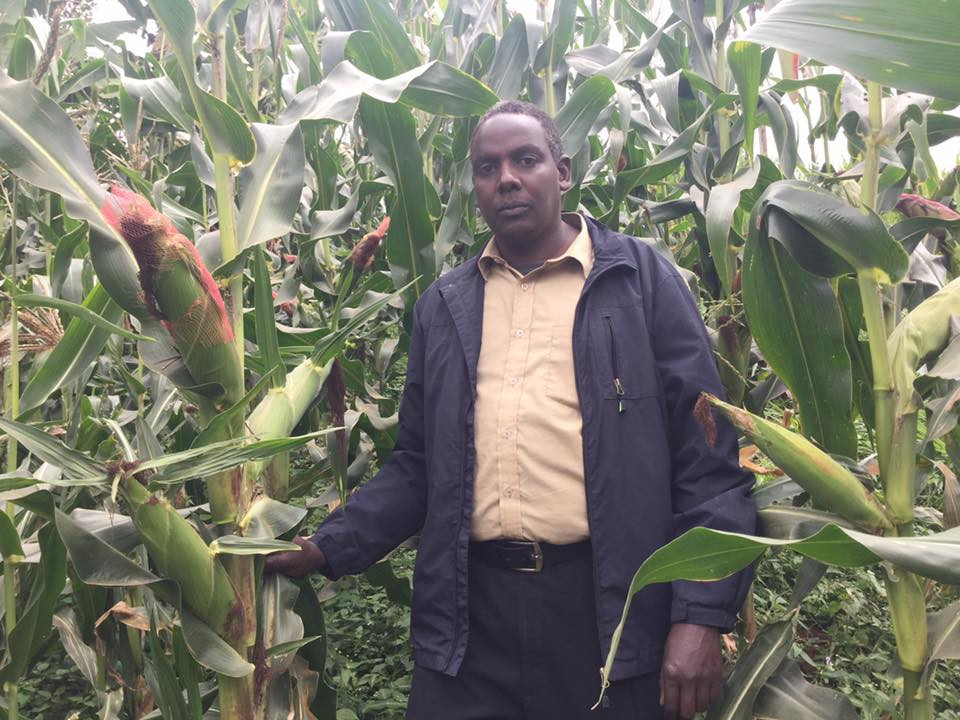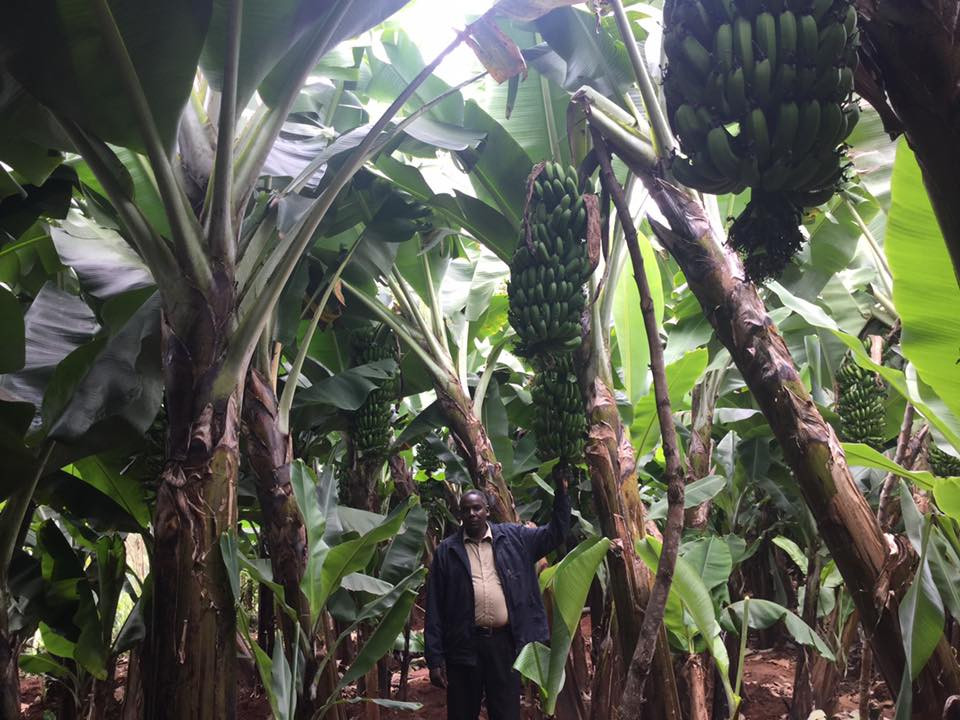In his home village in Janine, Murang’a County, Kenya, James Wahindu Mutitu’s farming activities have not only made him popular but also enabled him earn some good income.
Mkulima Young team finds the biology and agriculture on his maize farm checking the progress of the crop that has this time done amazingly well following heavy rains in the March to May season.
Not far from the one-acre farm on which he farms maize, tens of his banana plants sag under the weight of heavy fruits and cows lie at a shed chewing the cud.
“I am striving to turn this long school break brought about by Covid-19 into a blessing. For me, there is no any other better way to spend time this holiday than to my business of farming,” he says.
Mutitu started farming in 2002 soon after completing his university education at Egerton University.
“I remember I first planted maize and the crop did so well that people kept on asking what miracle I had used to get such good harvest. Then in 2006, I established napier grass using the “tumbukiza method” which involves digging holes, filling part of it with manure and watering well. There were 300 holes and each cost me Sh30,” recalls the teacher, whose students have nicknamed Mwalimu Ng’ombe due to his farming activities.
The crop did well, including during the dry season, enabling him to venture into dairy keeping.
“I later registered my animals with the Kenya Stud Book and started to train farmers on forage conservation, specifically silage-making. I also expanded my agribusiness to banana farming by starting with 20 tissue culture bananas and I now have over 200 plants.”
In the village, his maize crop stands out, making him the envy of many. Mutitu says it all boils down to agronomical practices. So what is his secret?
"I space the plants 90cm by 30cm. That is 90cm from one row to the other row and 30cm from one maize plant to the other. I plant one seed per hole unlike many people who do two or three. Scientifically, good spacing makes maize plants yield two bigger cobs."
He explains that maize seeds should be planted with fertiliser, not planting then later adding the input as some farmers do.
“For a good root system, maize requires phosphorus, which is slightly soluble in water and should be placed as close as possible to the plant's roots for absorption since after some time, it becomes insoluble thus cannot be used by the crop. Use your manure or inorganic fertiliser as recommended for your region. Put some fertiliser or manure in the hole and cover with some soil then put your maize seed and cover again with soil,” he says, adding one should not put maize seed under the fertiliser to avoid scorching.
Once the plant grows to 45cm tall, Mutitu explains a farmer should add nitrogen fertiliser (CAN or, ASN) as per recommendations to accelerate vegetative growth. The latter is a compound nitrogen and sulphur fertiliser.
His 200 banana plants offer him 30 bunches every three weeks, which he sells through various marketing channels.
“A kilo goes for Sh14. Initially, when I was selling from the farm, a bunch would fetch Sh300 but with a kilo one earns up to Sh600,” he says, adding he has now embraced online marketing, selling through Mkulima Young which has offered him better prices, thanks to recent Covid-19 restrictions that made marketing a little harder.
Banana plants, according to him, need plenty of water. “I've dug water pans which collect water from the road when it rains and I use it to farm,” says Mutitu, who also sells suckers at Sh100 each.
The plants, he warns, are attacked by diseases like cigar end rot caused by fungus. “I feed affected produce to cows or goats therefore not much is wasted."
Mutitu currently keeps four animals which comprise of an in-calf cow, a heifer, a bull and a calf, having scaled down the business due to challenges with labour, low milk prices, disease like milk fever and downer cow syndrome.
"I also have a kitchen garden where I grow a variety of vegetables especially the traditional ones (managu and terere) and herbs like parsley and fennel. I don't plant trees on my farm since they prevent sunlight from reaching the ground hence affecting light intensity. When light intensity is minimal, the rate of photosynthesis is minimal and vice versa."
To contact Mutitu click here
To register as Mkulima Young member, click here
To be featured on our blogs WhatsApp the MY Team through +254710848002 WhatsApp ONLY) with three photos of your farm.


